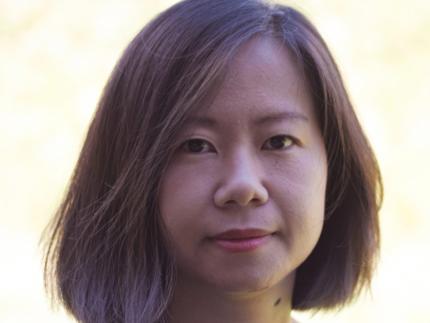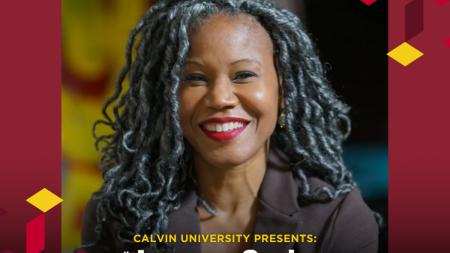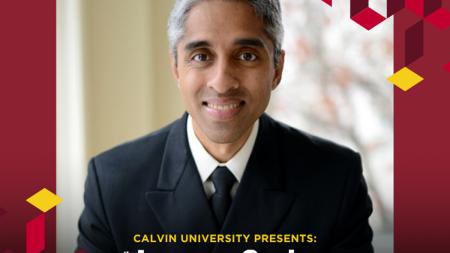Students Begin Masters of Counseling Program

The World Health Organization noted that approximately 450 million people around the globe struggle with mental health issues. In fact, such issues are now the leading cause of disability worldwide.
North America is certainly not immune to the crisis. For example, the Canadian Association for Mental Health reports that one in two Canadians have—or have had—a mental illness by the time they reach 40 years of age. It’s not surprising, then, that the U.S. Bureau of Labor Statistics projects that employment for mental health therapists and counselors will outpace the employment average in all other labor categories over the next decade.
Calvin Theological Seminary’s new Master of Arts in Clinical Mental Health Counseling (MCMHC) is a direct response to this growing need. Launched in September 2023, the professional and theologically grounded degree offers coursework in religious and theological foundations, clinical counseling, and clinical practice.
Graduates from the program might consider using their knowledge and gifts by serving as clinical mental health therapists, clinical mental health counselors, addiction counselors, behavior counselors, or in other mental health roles.
Qinjun “Cathy” Zou is part of the first cohort that began studies this fall. She and her husband, Jiabin (“Andrew”) Qie, came to Calvin Theological Seminary (CTS) from China six years ago as Andrew began the Master of Theological Studies (MTS) program. Upon obtaining his MTS degree, he was accepted into the Master of Theology (Th.M.) program at CTS, and he is now enrolled in CTS’s Doctor of Philosophy (Ph.D.) program.
Over those six years, Cathy was busy with their two young children. But with both children now in school themselves, Cathy began to explore what God might next have in store for her.
Her first several years in the United States were hard, she said. With her husband engaged in his studies, she found herself taking on many of the responsibilities of raising their young children. She was lonely initially, she said, and on top of dealing with all the major life transitions they had just experienced in moving to the U.S., she was also learning to cope with Michigan weather, which, during the winter, can often be dark, damp, and cold. Just as she seemed to be getting her bearings, the global COVID-19 pandemic hit.
In her home country of China, counseling was sometimes frowned upon in conservative church circles, she said. But Cathy knew she needed help, so she visited a professional counselor. Her experience led her to understand that faith and psychology don’t need to be understood as enemies.
In fact, the help and healing she experienced through her counseling journey led her to apply to Calvin’s new program. Cathy said that even though she learned a lot through that difficult season, she certainly wouldn’t want to go through it again. She feels that through the training she receives at Calvin, she’ll be able to help others who are struggling.
In fact, she and her husband may return to China after both their studies are finished, she said. As in the West, the need for mental health professionals in China is also significant, and she’d like to be part of the solution.
Dr. Danjuma Gibson, professor of pastoral theology and director of the new clinical counseling program, said that such stories encourage him. He noted, “This degree program is committed to preparing students like Cathy who feel called to aid and assist the millions of people around the world who suffer from a variety of mental illnesses.”
Students who enroll in the MCMHC program will be able to complete the 60 credit hours required for the degree by studying on campus, online, or both. Cathy has chosen to study part-time on campus. Because her courses are primarily held in the evenings or on weekends, and Andrew’s courses are generally on weekdays, he will be able to provide a lot of the childcare while his wife is engaged in class sessions.
Like others enrolled in the program, Cathy will also need to be involved in clinical practice sessions. These formative contextual learning opportunities will allow her to gain additional insights, mentoring, and experience in the field. The goal, in Gibson’s words, is “to train students who will be competent and skilled in the ethical integration of Christian faith, spirituality, and counseling in a way that promotes healing and shalom in the lives of individuals and communities.”
Faithful ministry-share giving helps not only to sustain existing programs at CTS but also to equip the seminary to develop and offer new degrees like the MCMHC. CTS is grateful to the Christian Reformed Church in North America for being part of the way God is equipping people like Cathy to advance his kingdom and the redemptive witness of the gospel message to every part of creation.
This fall, CRC News is sharing stories that demonstrate the impact of ministry shares. To learn more, visit crcna.org/ministryshares or invite Jeff Bolt (U.S.) or Roshani Morton (Canada) to speak to your council, congregational meeting, or classis.


